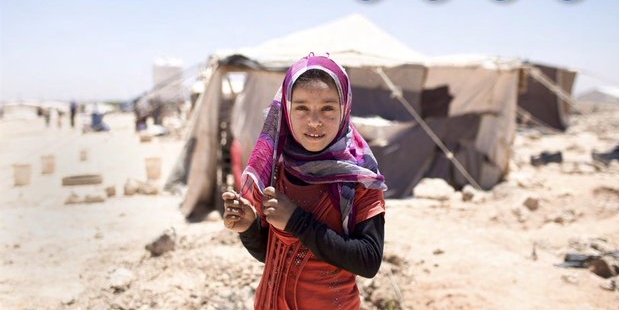
Health financing in fragile and conflict-affected settings webinars
25 January 2022
ReBUILD for Resilience was involved in two webinars in collaboration with the World Health Organization (WHO) on health financing in fragile and conflict-affected settings; one session Francophone and the other Anglophone, and each with a slightly different focus. You can access recordings off the sessions and further information below.
Health financing in fragile and conflict-affected settings: when humanitarian concerns dominate
Many countries face instability that affects their ability to exercise sovereign functions and provide basic services to their populations to the point of undermining their legitimacy. These so-called “fragile” states pose significant challenges for progress towards universal health coverage. They call into question, among other things, the financing of health care.
A first webinar (in French – see below) focused on protracted crises. In this second English language webinar, we focused on situations like Yemen, Syria, Somalia or Afghanistan where the conflict is ongoing or recently ended, where humanitarian crises dominate, and where the priority should be to cover basic needs. There are international humanitarian NGOs on the ground in these states but they also face major security issues. This webinar looked at the role of health financing interventions and their capacity to support the humanitarian agenda.
This session was run in collaboration with WHO EMRO and the Health System Global Working Group on fragile and conflict-affected settings [both open new tabs].
Contributors
- Awad Mataria – WHO EMRO
- Matthew Jowett – WHO HQ
- Sophie Witter – Queen Margaret University, UK and ReBUILD for Resilience
- Egbert Sondorp – KIT Royal Tropical Institution, Netherlands and Health Systems Global
- Andre Griekspoor – WHO
- Mit Philips – Médecins Sans Frontières
- Mohammed Musa – WHO Sudan
- Elina Dale – WHO Health Systems Governance and Financing
Financement de la sante dans les contextes fragiles : aller vers la CSU en dépit de l’instabilité
The session focused on health financing during protracted crises in states such as Burkina Faso, DRC, Mali, Niger and Chad. In such states instability, societal divides, political conflicts and lack of governmental control may be hampering any Ministry of Health efforts towards UHC. This webinar is of particular interest to national experts and their partners looking to sustain their efforts towards UHC in such settings.
This session was run in collaboration with WHO AFRO, the Health System Global Working Group on fragile and conflict-affected settings, and AFRAFRA [all open new tabs].
Contributors
- Mohamed Ali Ag Ahmed (Chair) – AFRAFRA
- Matthew Jowett – WHO HQ
- Dr Maria Paola Bertone – Queen Margaret University, ReBUILD for Resilience and Health Systems Global
- Dr Noelly Douma – Ministry of Health, Central African Republic
- Dr Kouanda – formerly Ministry of Health, Burkina Faso, now responsible for health at the World Bank in Benin
- Dr Barbara Profeta – Swiss Development Cooperation and Health System Global
- Bruno Meessen (Conclusion) – WHO HQ
Background to the webinars
These webinars were run in collaboration with the WHO’s Health Systems Governance and Financing department as part of its Health Systems Governance and Financing Webinar series.
The sessions were based on work conducted by ReBUILD and partners with WHO on health financing policy and implementation in fragile and conflict-affected situations (read the report and the background paper here). Most of the reports’ authors are involved in one or both sessions.
Image: Cover image from report entitled ‘Synthesis of evidence and policy recommendations: Health financing policy and implementation in fragile and conflict-affected settings’